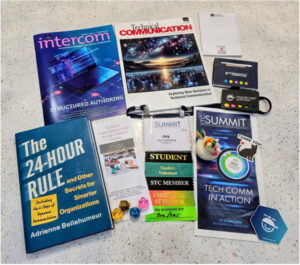By Joy Carandang, STC Student Member
Last month, I had the pleasure of attending the 2024 STC Summit in Bloomington, Minnesota, alongside my colleagues and friends from the Future Technical Communicators (FTC) club at the University of Central Florida and the STC Florida Chapter. As a student volunteer and first-time attendee, I am grateful to have had the chance to travel to our field’s annual premier conference through the support of our faculty advisors, FTC-STC Florida leadership, and donors.
Continue reading “What I Learned About Tech Comm at the 2024 STC Summit”

